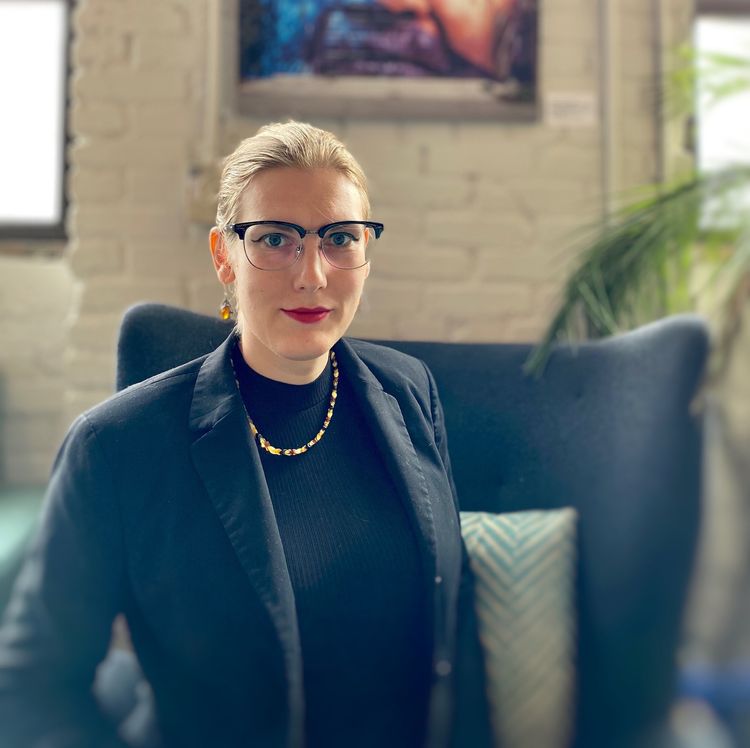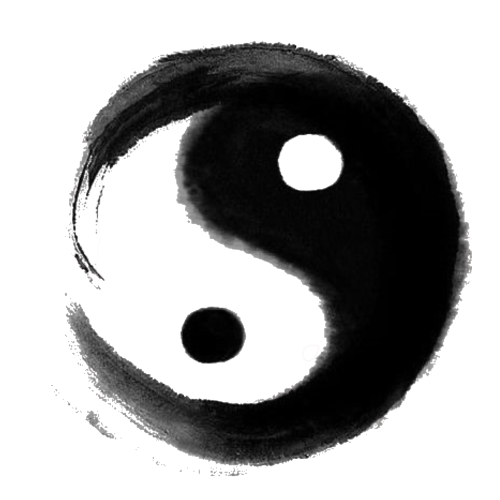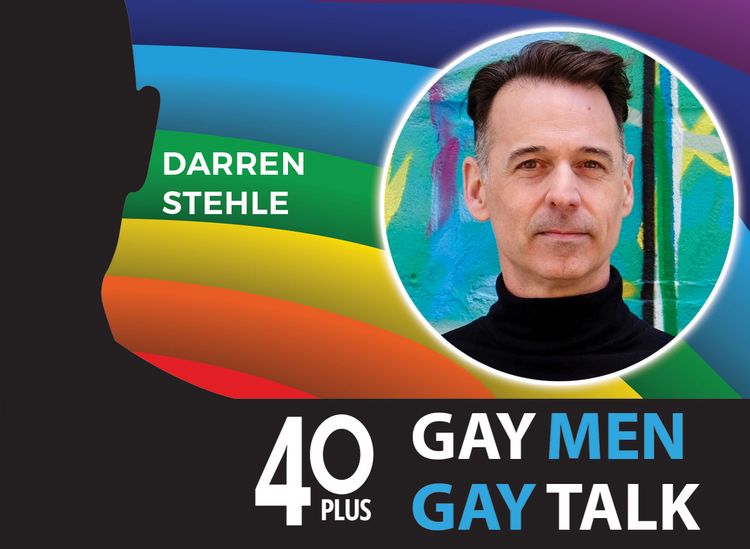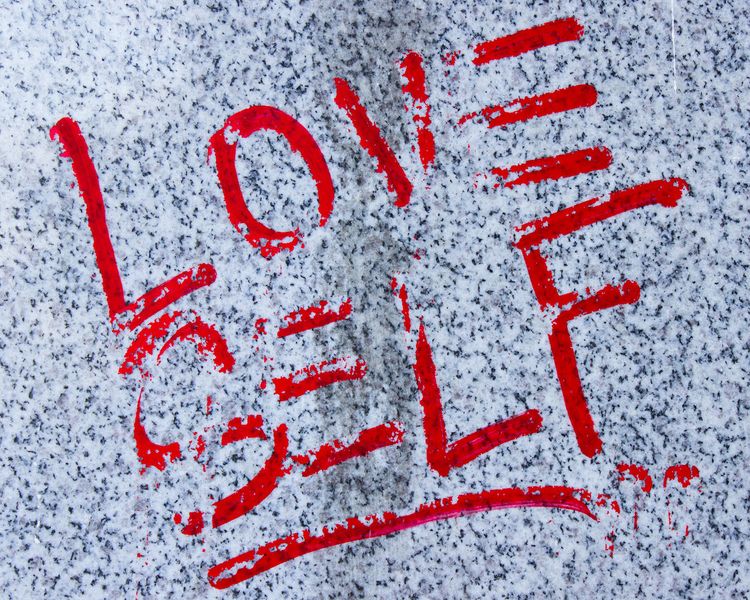My Top 10 Articles and Think Queerly Podcast Episodes from 2021

Ideas and practices to help people experience more love, happiness, contentment, and freedom — TQP212.
Underlying my work is my philosophy of human-heartedness. This is a non-dogmatic approach to leading with personal responsibility for equity and the common good — a way of being that improves open-mindedness, reduces contention, and increases kindness, compassion, and understanding for others.
Looking back over this past year, I believe that I have created and shared meaningful content that speaks to my philosophy and offers ideas and practices to create more clarity, focus, and direction in your life.
My Top 10 List for 2021
1. Some Thoughts on the Issues to Consider for Leaving Facebook.
Most of us have forgotten the time from about 15 years ago when Facebook did not exist. What did we do back then? The way we maintained relationships involved things like visiting in person, phone calls, emails, and writing letters.
Facebook came along and slowly made most of those options virtual, but also expanded the number of people we could call “friends”. Most of those people who we call friends on Facebook are not. Just because Facebook uses the label, “Friends,” doesn’t mean that they are, not unlike going into an independent coffee shop and ordering a “Grande”, which is a term coined by Starbucks.
That’s not to be mean or disrespectful to the people who are following someone’s profile; it is simply the truth. As social beings, even the most gregarious person doesn’t have more than a handful of very close friends (not counting family) and perhaps no more than two digits worth of other people they might also call friends — or acquaintances.
2. Freddie Lewis On Using Music and Poetry to Share His Journey of Finding Self-Love as a Queer Person.
Freddie Lewis offers a rarely seen or heard genuineness of character that connects to our deeply humane level of self-acceptance and being seen for one’s truest self. Through his poetry or his words put to music, he shares expressions of happiness, joy, playfulness, prettiness, and rhythmic beats that catch your ear, invites you in more deeply, and won’t let go.
In his poetry, Lewis employs playful turns of phrase and gorgeous one-liners that make you stop to catch your breath. As a reader, you are gently caught off guard and need to go back and read the words again — as if you had turned your head at the wrong moment and missed something important. Freddie demonstrates a simple, joyful celebration of self-pride that shows up in his being simply who he is. You don’t need to be queer to appreciate his art — you only need to be human.
3. Banned From California — Jim Foshee’s Life of Persecution, Redemption, Liberation, and the Gay Civil Rights Movement.
In the 1950s, as 15-year-old Jim Foshee hitchhiked from his tiny Idaho hometown to Los Angeles, he met kind-hearted strangers, kindred souls, and drag queens as well as con artists, liars, and ruthless cops. His vivid memories of McCarthyism, government hunts for homosexuals, and routine firings sit alongside remembrances of the Beats, hippies, and liberation protests fill the pages of Robert C. Steele’s book, Banned From California.
4. Michael Bach — Internationally Recognized Thought Leader in Inclusion, Diversity, Equity, and Accessibility.
Michael’s definition of Diversity and Inclusion: Diversity is the thing that makes you different. That can be your sex, gender, race, ability, socio-economic background, etc. Diversity is about anything that makes you unique and is much broader than the traditional definition that focused on marginalization. Inclusion, by contrast, is about creating spaces where people can exist (work, school, hospitals, etc) and where you can bring your whole self to that space, without having to hide any part of yourself. And if we are truly being inclusive, then we must include straight, white, able-bodied men.
5. What Can You Control in Your Life to Experience More Love, Happiness, and Freedom?
A Personal Evolution Process to Get Clarity About What You Can Influence In Your Life.
The minute we think we have control, it can be taken away. In essence, there is really nothing that we can hold on to with the absolute certainty that it will never change. We might hold on to a rock and believe that is the perfect example of permanence until we accidentally drop it, and it breaks into several pieces.
We might believe we have complete control of our feelings until we are triggered and explode in an out-of-control rage — or run away in fear. When we look back at situations in which we thought we had no control at the time, we might see things differently in retrospect. You might think to yourself, “Had I known how to better manage my emotions, I might have been more aware of my triggers and back off from arguing to avoid losing my temper.” That’s precisely what I have observed in myself!
6. How Can You Reduce the Anxiety of Overwhelm?
Understanding and implementing the paradox of less is more. If your focus is on trying to do too many things, your focus isn’t on any single thing! That’s the recipe for anxiety and overwhelm! However, you can redefine what “more” means by seeing it as the “quality of attention” that you place on appropriate actions that are in alignment with who you are. This shift in focus will increase your personal satisfaction, happiness, peace of mind, freedom, and joy.
7. What Should You Do When You Don’t Feel Competent Enough?
What can you do when you feel like you’re not good enough, not skilled enough, not educated enough, or not capable enough to write that article, publish your book, or create your thing? Take a few, deep breaths and then get curious about why you feel that way.
Being curious isn’t going to solve all your problems. However, being curious is great for your state of mind and for the humility and self-awareness that comes into play — especially when you are truly open-minded and genuinely curious to learn and improve your skillfulness. (Instead of making excuses, seek to be curious instead.)
8. Forget Affirmations, What You Need Are ‘Statements of Self-Truth.’
Why your personal truth and current reality kick sand in the face of positive thinking and affirmations.
My client was telling me about using affirmations and trying to think positively. We had a discussion about how those words and actions are mostly meaningless because they don’t connect with the truth. When you affirm, “I am rich and powerful, and loveable” — an all-too-common affirmation — what reality does that connect with if you are currently not rich, or powerful, or loveable?
If you don’t feel self-love, your brain won’t believe that affirmation. If you’re $50K in debt, the reactive part of your brain will not feel safe about that level of debt, and your logical brain might — smartly — reject the affirmation because, well, it’s just not true.
9. Universal Human Dignity: Human Love and Self-Expression Must be Free.
In this deeply personal episode, I share my thoughts about how far we have come, and how far we still have to go regarding universal human dignity. Throughout history, humans have exercised and practiced various forms of control, which Yuval Noah Harari refers to as the myths that create our culture in his book, “Sapiens: A Brief History of Humankind.” These controls have dictated who belongs and who doesn’t in society.
I argue for an end to dehumanization — for a more critical reflection of rigidly held religious beliefs. I express dismay at the fear and hatred of LGBTQ2S+ people and the neglect of the arts and technology we queer people have created and contributed to the betterment of society.
The only way forward in creating a universal human dignity is to hold loving, open-minded, compassionate, and non-contentious dialogue. We must do this with people who are willing to participate in potentially challenging conversations, which have the potential to transform social norms and morality as we know them.
10. On Staying Insecure and Embracing Imposter Syndrome.
Think about this for a moment: What is certain in life? Absolutely nothing. Each of us has dreams, desires, plans, and goals. But every one of those things requires action, and action doesn’t necessitate an outcome that you may have perfectly imagined.
Metaphorically, personal transformation is like the potential that exists inside an apple seed. Without water and soil for it to take root, the apple seed remains unremarkable. Yet, with the nourishment of water, nutrients from the soil, and the right environmental conditions the seed will transform from an almost unnoticeable speck into a tree that provides hundreds of delicious apples, year after year.
The same is true of a new idea — be that philosophy, a new approach, revolutionary software, or a scientific breakthrough. Greatness is a kind of transformation that has nothing to do with ego. Instead, greatness is the challenge to confront that which you don’t know how to solve, yet you face the problem head-on, not knowing if you will succeed, but you keep trying anyway.





Member discussion